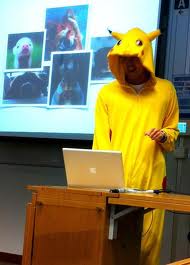Why academic 'marketing' taught in Singapore schools is flawed
By Seth LuiMy first formal Marketing 101 course came in my freshmen year of university in 2006. All undergrads were put through this core course. Subsequently, as a Marketing major I took modules on Advertising, Consumer Behaviour, Market Research, Promotions Marketing and a slew of other marketing courses.
I have spent hundreds of hours being academically drilled on marketing, especially the classic 4 Ps: Price, Promotion, Product and Place. For the most part, project presentations were fluffed up gimmicks that could never be realistically reproduced, and final reports depended, admittedly, on favourably skewed data.
This was a necessity, because without it we couldn’t get the ‘right’ correlation coefficient, the consumer pattern or any pattern for that matter for our report which was graded based on proving a pre-determined course guideline. No one wanted to see an R curve that was like random blood splatter. No blood was going to be spilt on my watch.
Pikachu, I choose you… to present our case study.
This was widespread. Students plucking data from thin-air, coming up with the flashiest advertising videos, wearing goddamn costumes to a presentation. I kid you not, this is an actual picture of a student wearing a pikachu costume doing a presentation in my Alma mater, Singapore Management University. All in the name of good grades.
For all intentions, getting decent GPA by any means necessary was undeniably the top priority of going to university or college. And students were being rewarded for it. Being the competitive Asians we are, everyone jumped into this mockery of a system. We weren’t here to learn Marketing, we were here to impress professors into giving us A+s. Myself included, guilty as charged.
But how many of us actually managed to come out of Marketing school with practical, applicable knowledge on marketing? Not many, and I’m going to explain why.
Most collected statistics have been tempered with
This is not unique to just Marketing, but Marketing courses are one of the most common cesspools of deceit, given the requirement of market surveys. Even with the largest sample size of say a census, the data is still going to be infinitely messed up and near indecipherable.
You can barely do any proper measurement without cleaning the data thoroughly and omitting a hefty chunk. So what do you expect from a group of students who have the time and resources to collect 100 surveys? Were we going to allow ourselves to get flunked for collecting real world, faulty data? Hell no.
The research results we obtained was going to be used one way or another to fit the purposes of the marketing course. And why we do this is because, to the school, survey findings didn’t matter. It was how our data fitted nicely into their expected course teachings.
If we were trained to only work with perfect data in school, how effective can we be when coping with realistic, unfiltered data?
Grades are the focus, not the learning
In most formal education institutions, results are favoured heavily over actual learning. The truth is that students have got so good at regurgitating answers in exams, we simply forgot the actual purpose of education, which is to learn.
And for those who cannot or refuse to memorize a textbook in a week, we deem them as untalented. In marketing class, it was the flashiest presentation, the most dramatic video and the tightest data fit (thus yielding a report that supports marketing textbook lore) that brought the bacon home.
As Einstein once famously said “if you judge a fish by it’s ability to climb a tree, it will live it’s whole life believing that it is stupid.”
Limiting conditions are set
Firstly, the entire timespan of a typical school marketing project would be something like 8 weeks, given we had to take time off to study for mid terms, exams and work on other modules. We are given 8 weeks to conceptualize, plan and produce a marketing campaign for a company, when typically an actual advertising firm would take the same 8 weeks just to come up with a client approved concept.
And these guys have professional resources like graphic designers and supplier contacts. No firm executive would ever personally draw their own poster. Worst of all, we have to work within the media being taught. In advertising, it’s mostly commercials and billboards. This severely restricts our imagination, because the media is decided before the idea develops, which could have worked brilliantly in a totally separate media, like mobile messages.
Even if such new media were allowed, the actual effectiveness cannot even be compared against traditional media on the academic platform. Bringing a simple call-to-action text message campaign up against a Michael Bay inspired FX action video campaign is pure academic suicide given that grades are on a bell-curve. No student is going to even consider a non-bombastic campaign.
Assumptions about business are unrealistic
Although in a school project, there is typically a marketing budget set, this budget is normally out of reach to most businesses. Small businesses simply cannot afford tens of thousands of dollars to advertise, yet simply wait it out to ‘build their brand’ in the long term. This business is going to close down within weeks of spending such an absurd amount of money without seeing any short-term returns.
We are inherently assuming in our marketing classes that businesses have already reached a certain stage of development to be able to a) afford above-the-line marketing b) bear losses while their campaign runs. This is not true for 90% of all businesses and marketing students need to work with realistic assumptions instead of bottomless budgets.
School taught marketing principles are outdated
In terms of what media is available, schools still hang on to above-the-line media (mass audience tools like television, radio) like it’s the bible of marketing. Social media is barely making its way into classes and by the time they do, the next social platform will have appeared, making all materials in textbooks about the previous generation’s social platform essentially redundant.
Professors that have studied the old ways are not being re-educated on new media, while marketing fundamentals are changing rapidly. It’s no longer a spray and pray marketing game 20 years ago. Having the sleekest looking logo, or an awesome flash website is not enough. Consumers have a new marketing programming and schools need to get with the program.
What next?
Being conditioned for 4 years in such an environment, you can see how most fresh marketing graduates pretty much only know how to impress 1 person- their superior. And you might engage this marketing executive who seems to know what he is doing, but can he deliver actual, measurable results in business? This is why direct response-marketing is so important, yet fundamentally overlooked in schools. As a marketer, the only goal is to increase sales and margins.
If you are a student reading this, my advice is do what you need to get ahead in school, but always remember to pick up the practical skills. It is unlikely the education system is changing any time soon. For those that have already gotten their degree built on doctored results, fret not. You just need the discipline to continuously re-educate yourself in new media and in new methods of customer acquisition, not just flashy videos, to produce predictable and measurable returns on marketing.



























 Advertise
Advertise









